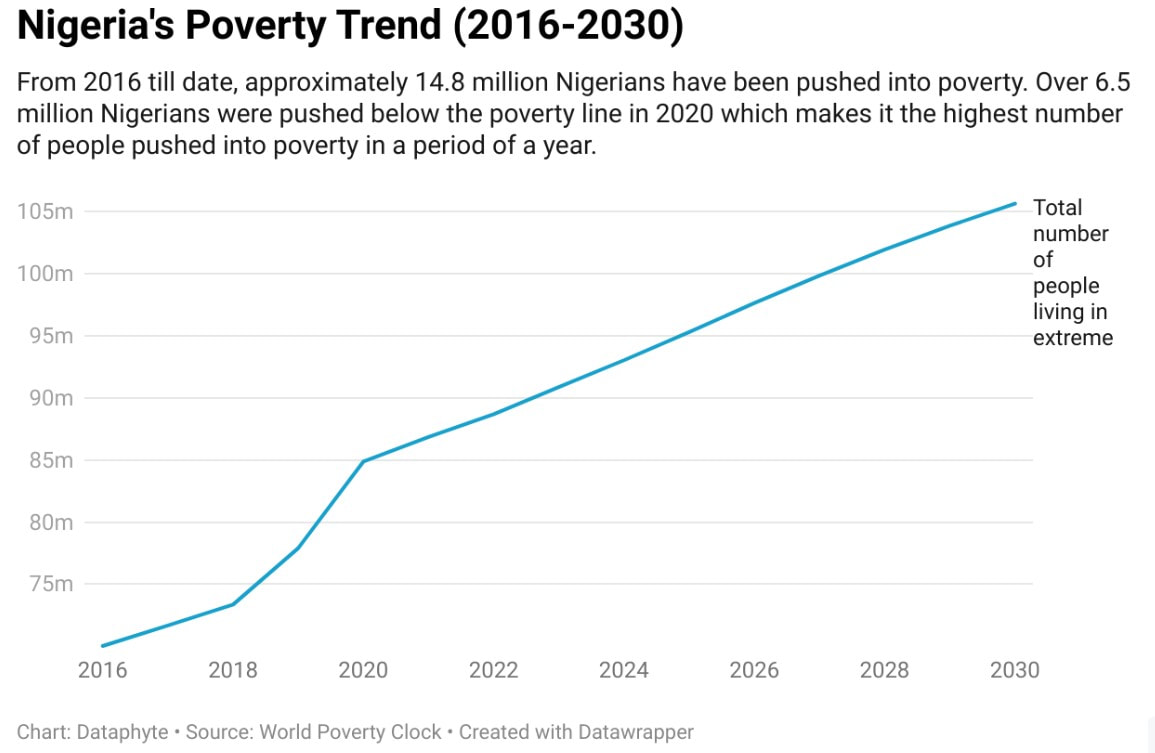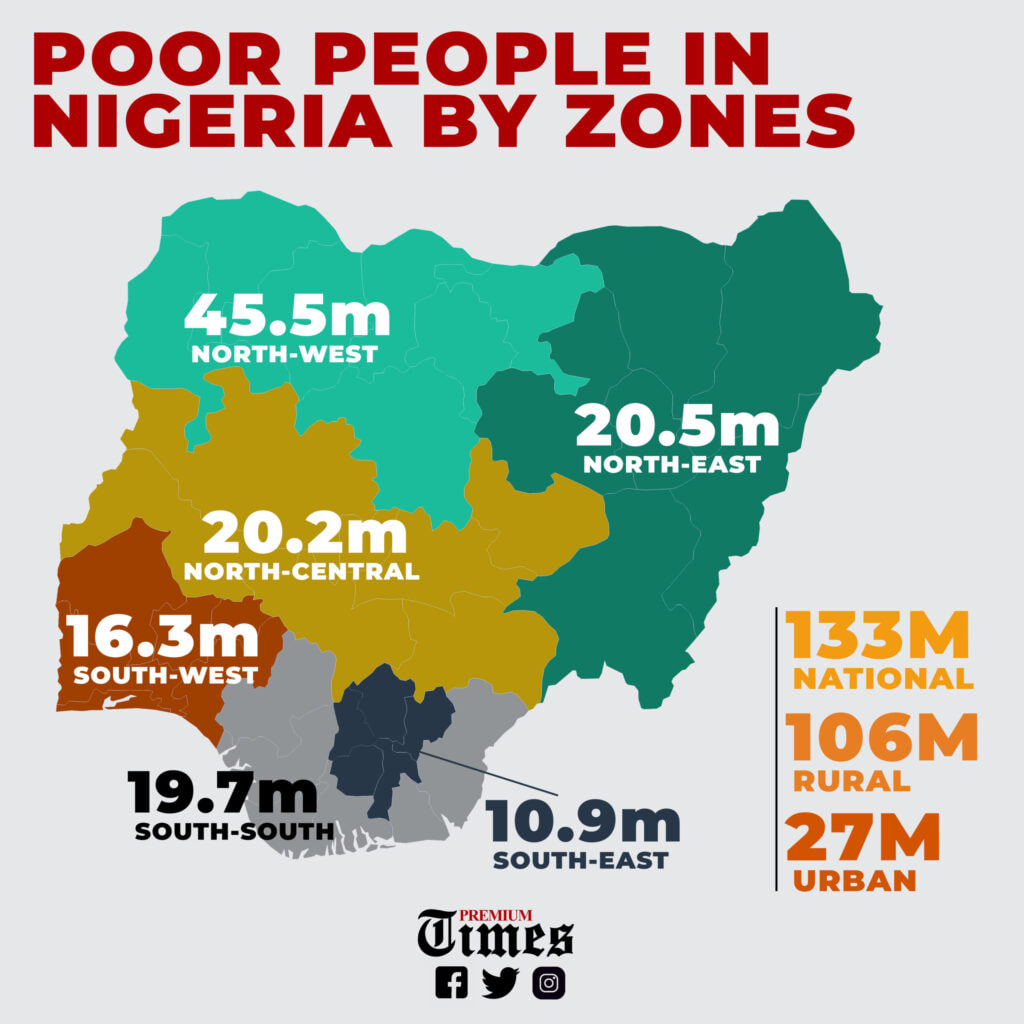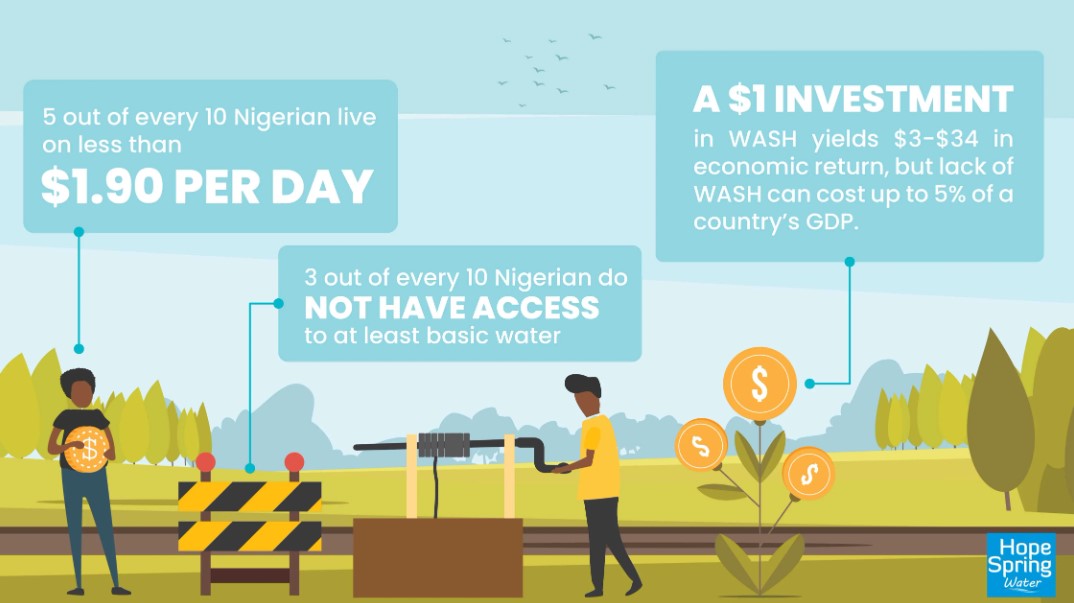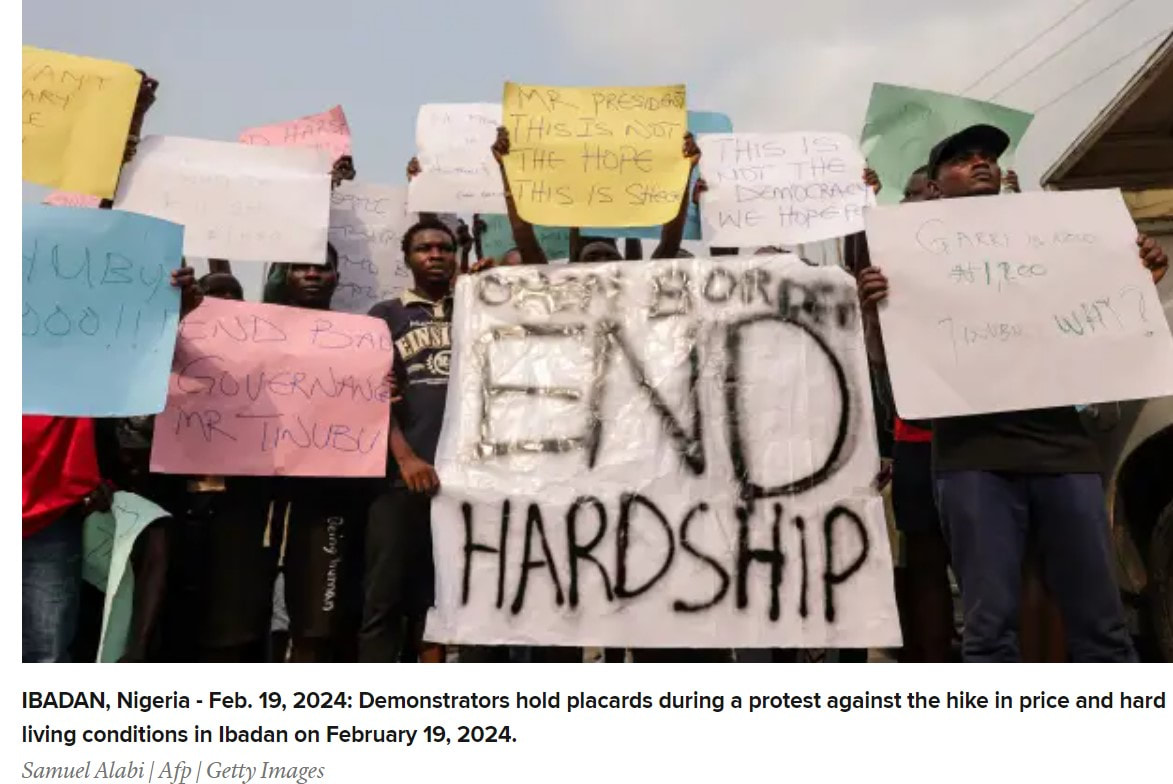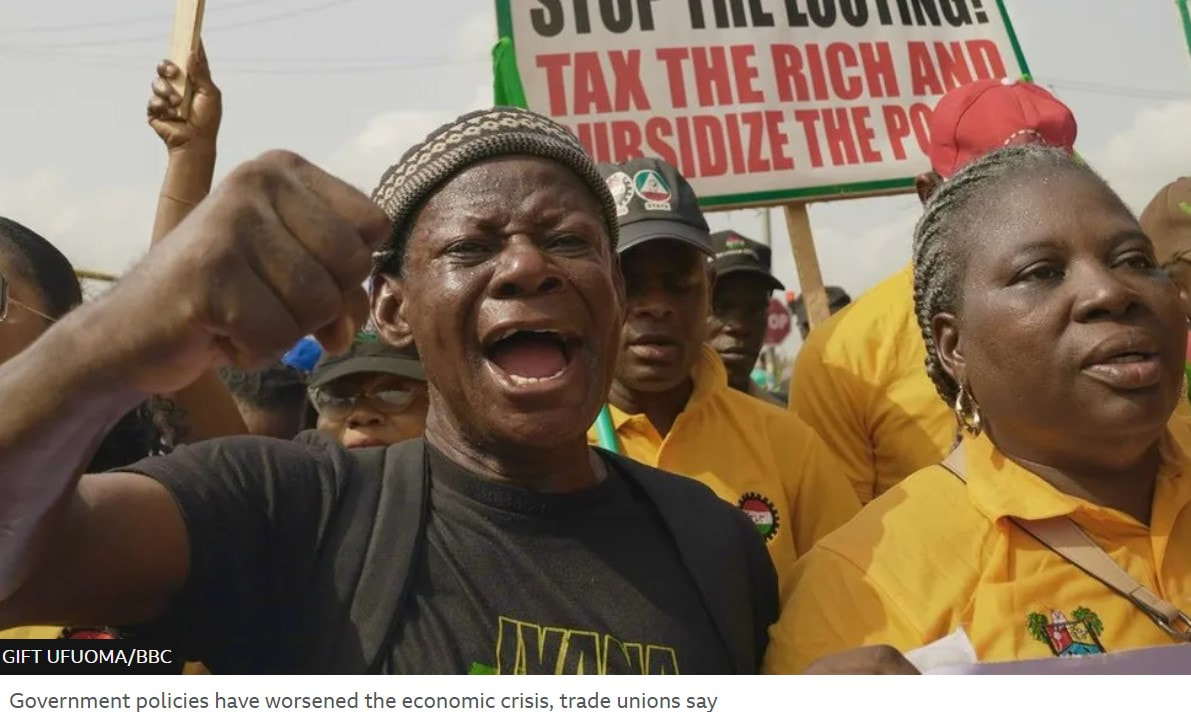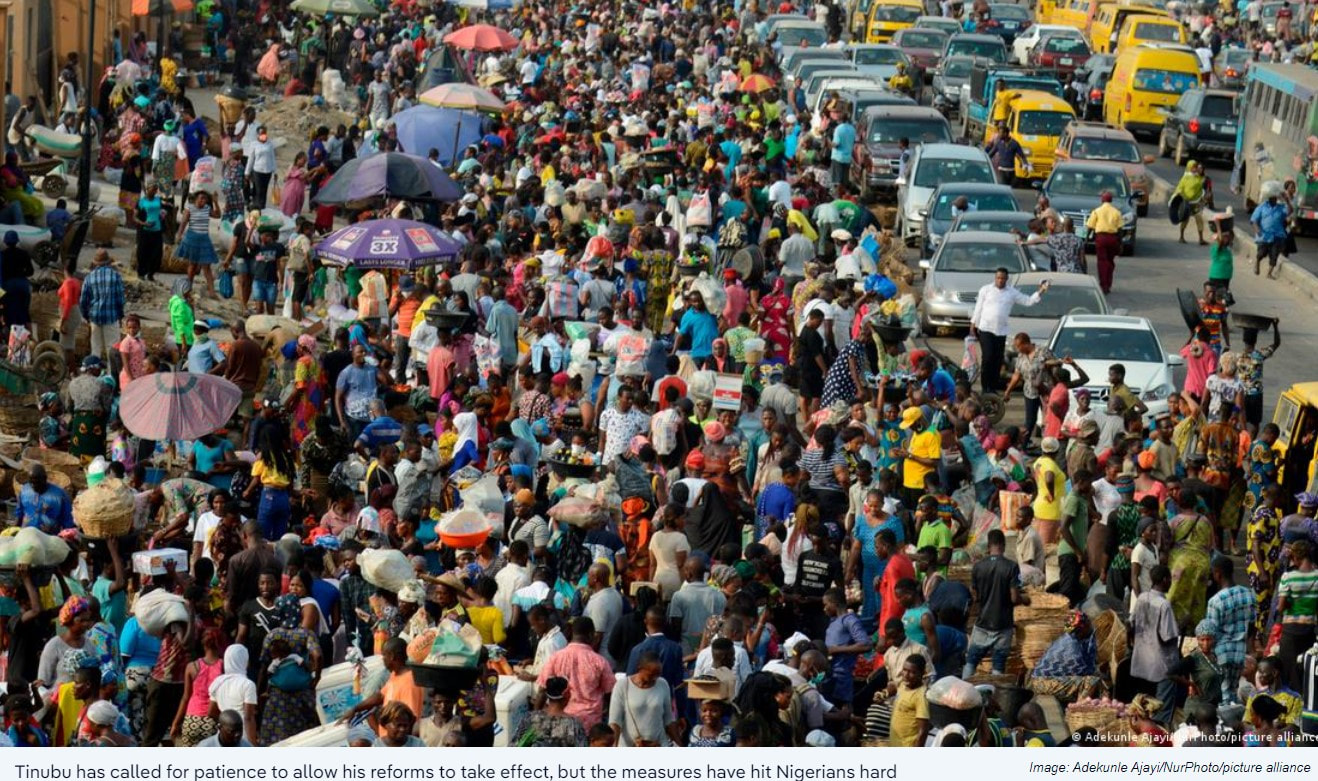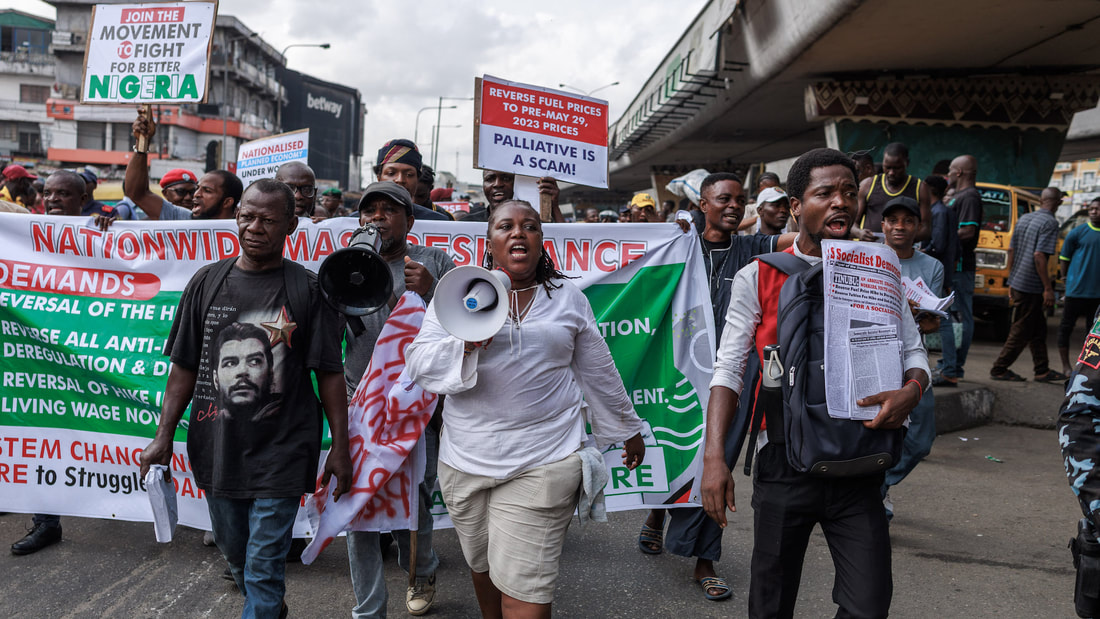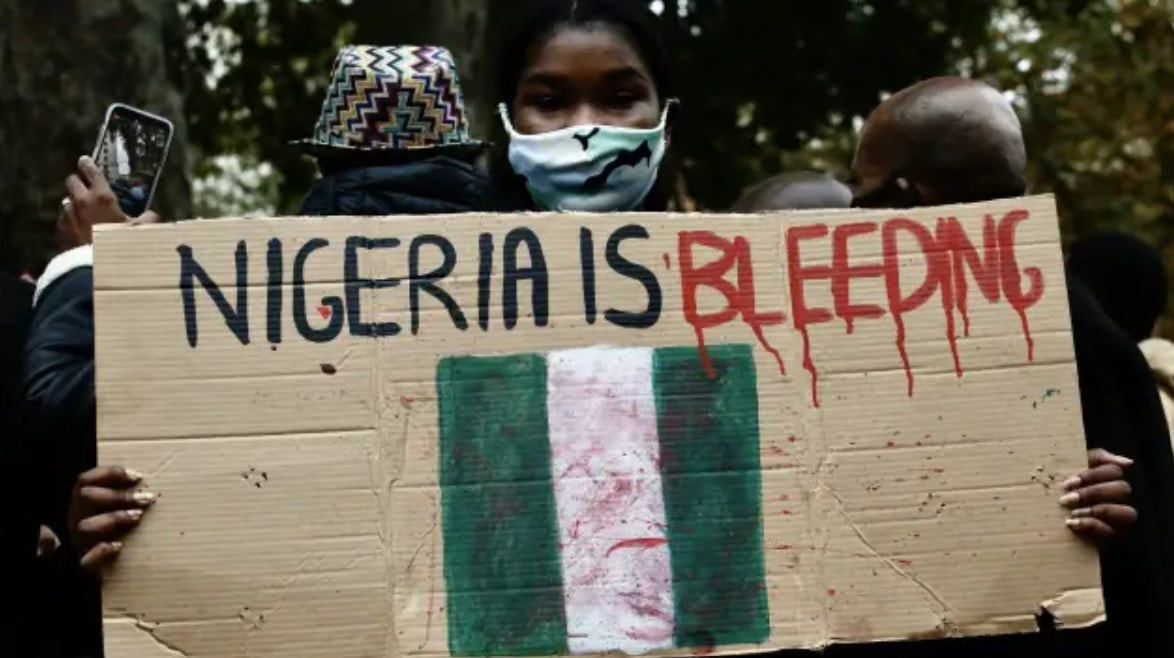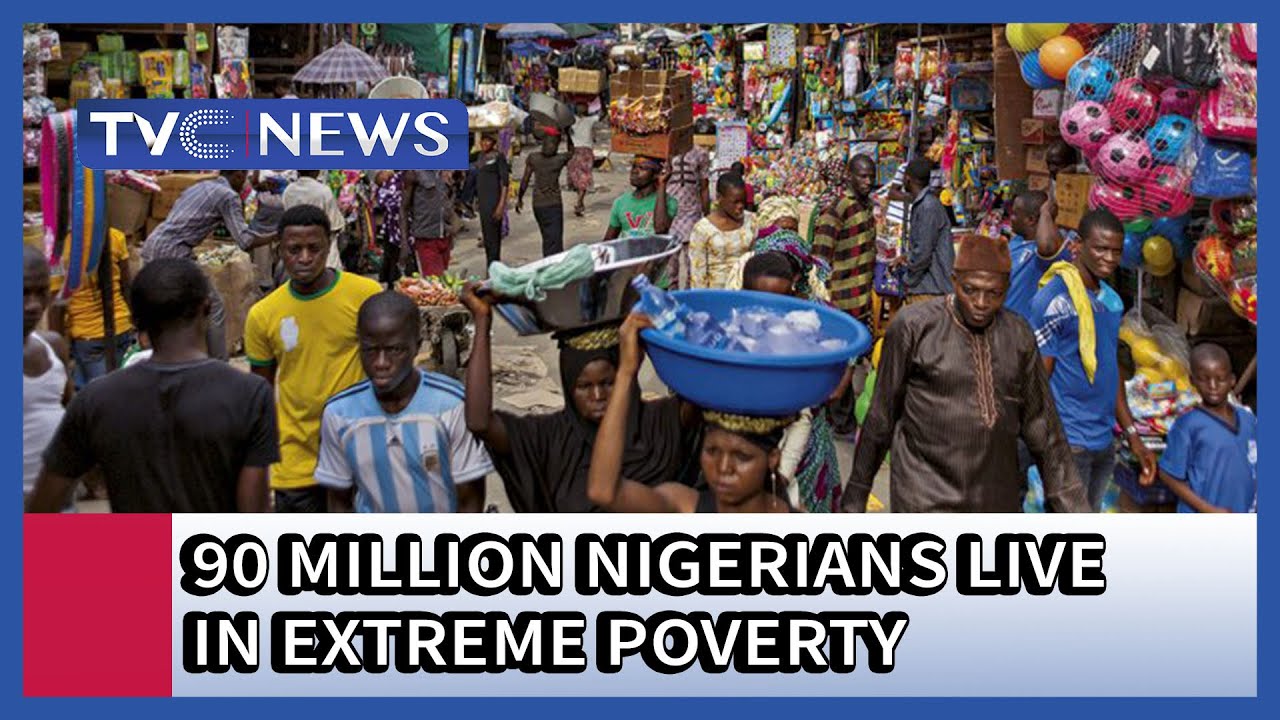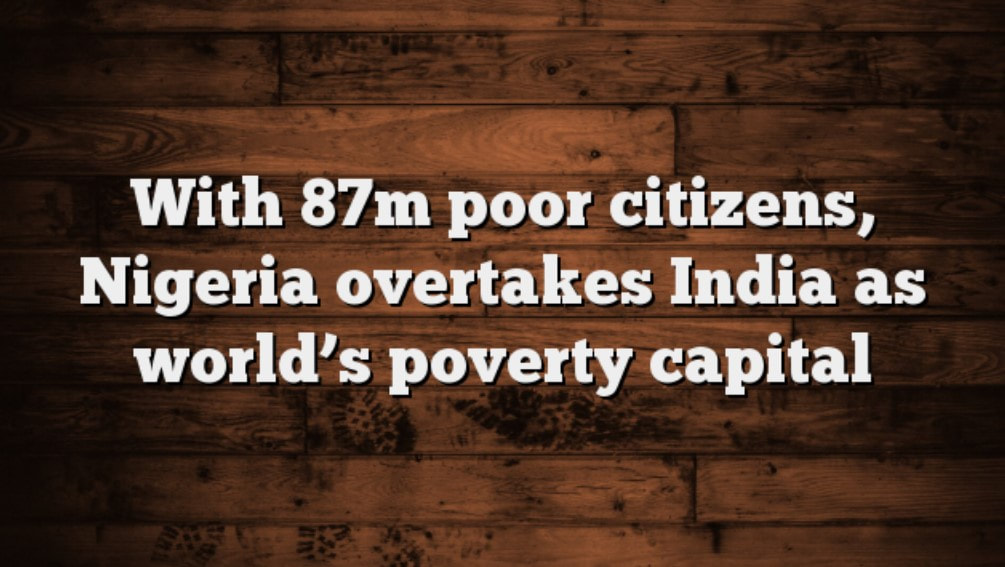10.03.2024
Nigeria Facing the Worst Economic Crisis in Its 63-year History
Many poor Nigerians have had to skip meals and give up products such as meat, eggs and milk. A litre of petrol costs more than three times what it did nine months ago, while the price of the staple food, rice, has more than doubled in the past year. These two figures highlight the difficulties that many Nigerians are facing as wages have not kept up with the rising cost of living. With annual inflation nearing 30% and a currency in freefall, Nigeria is facing one of its worst economic crises in years, provoking nationwide outrage and protests. The Nigerian naira hit a new all-time low against the U.S. dollar on both the official and parallel foreign exchange markets on Monday, sliding to almost 1,600 against the greenback on the official market from around 900 at the start of the year. The currency is down around 70% since May 2023 when Tinubu took office, inheriting a struggling economy and promising a raft of reforms aimed at steadying the ship. The country is Africa’s largest economy and has a population of more than 210 million people, but relies heavily on imports to meet the needs of its rapidly growing population. The surging cost of living and economic hardship prompted protests across the country over the weekend. The plummeting currency has added to the negative impact of government reforms such as the removal of gas subsidies, which tripled gas prices. It is far worse for some in conflict zones in northern Nigeria where farming communities are no longer able to cultivate what they eat as they are forced to flee violence. In the economic hub of Lagos and other major cities, there are fewer cars and more legs on roads as commuters are forced to trek to work. Credit: R.DIGITAL
Poverty deprives people of adequate education, health care and of life's most basic necessities- safe living conditions (including clean air and clean drinking water) and an adequate food supply. The developed (industrialized) countries today account for roughly 20 percent of the world's population but control about 80 percent of the world's wealth.
Poverty and pollution seem to operate in a vicious cycle that, so far, has been hard to break. Even in the developed nations, the gap between the rich and the poor is evident in their respective social and environmental conditions.
Poverty and pollution seem to operate in a vicious cycle that, so far, has been hard to break. Even in the developed nations, the gap between the rich and the poor is evident in their respective social and environmental conditions.

